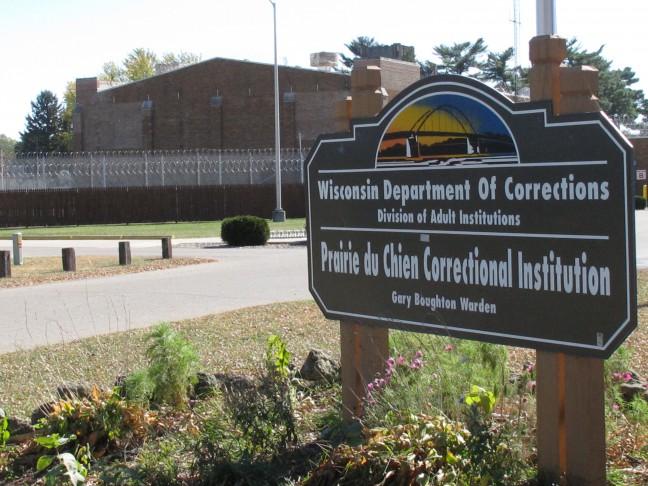Despite the Department of Corrections’ attempts to change the culture, Wisconsin youth prisons have had an increase in staff and youth assaults in the last year.
According to a report requested by 27 News to the Department of Corrections, from 2018-2019, youth-on-youth assaults at Lincoln Hills and Copper Lake increased from 118 to 165 and youth-on-staff assaults increased from 109 to 162.
Rep. Evan Goyke, D-Milwaukee, explained the importance of safety in these facilities.
“It’s going to be very difficult for a juvenile to make progress on those challenges if they don’t feel safe in the facility,” Goyke said.
Goyke said the American Civil Liberties Union brought a lawsuit years ago on behalf of abused juveniles at Lincoln Hills and Copper Lake. The lawsuit resulted in a special court monitor to track the use of restraints, pepper spray, solitary confinement and cases of abuse, according to Goyke.
Goyke said after the special court monitor there was a reduction in the use of restraints, pepper spray and solitary confinement, but he explained those conditions are not eliminated, and there continues to be challenges in how incarcerated youths are treated in Wisconsin.
Youth Justice Milwaukee is a campaign formed three years ago in response to the crisis at Lincoln Hills. Co-founder Sharlen Moore said the campaign is designed to advocate for young people and their families.
“It is definitely good that the facility stopped using those abusive and inhumane practices, but we still have a long way to go in regards to making sure that facility is permanently closed for young people,” Moore said.
Wisconsin county jails charge higher than national average for inmate phone calls, study shows
Goyke said Act 185 was passed in 2017 to close Lincoln Hills and Copper Lake by 2021. However, Goyke said it is unlikely right now that Lincoln Hills and Copper Lake will close as there is not a viable alternative in the form of more expanded local facilities.
According to 27 News, a survey from October found that 44% of inmates feared for their safety, and 48% felt they have been threatened or beat up in the last six months.
Sen. Lena Taylor, D-Milwaukee, discussed the potential causes for the juvenile assaults at Copper Lake and Lincoln Hills.
“I believe part of the reason is because we see juvenile corrections as a mini adult system and it’s not,” Taylor said. “How we treat juveniles should be profoundly different than how we treat adults and we have not fully embraced that as a state under the present majority.”
Taylor said the closure of Lincoln Hills and Copper Lake is one of the few bills to be unanimously passed across both houses. However, Taylor said the main problem is the majority not willing to provide the funding to make changes happen.
Moore said she is advocating for the new facilities to be smaller home-like facilities with four to 10 beds.
“Building facilities isn’t going to solve our problems,” Moore said. “We [must] provide the right infrastructure for young people to learn.”
Taylor agreed, but said opening these facilities will be difficult because they are underfunded by nearly $10 million. Goyke said he is not aware of any plans for the model Moore is pushing for.
“There is a counter-economic argument that can be made,” Goyke said. “If we do it better, we actually can reduce costs because we have less kids coming back.”
Goyke was unsure of the exact structure of the new facilities.
Sen. Lena Taylor, D-Milwaukee, said she would like if the new facilities do not resemble a prison as much as they presently do. She added the new facilities would have improved staffing ratios and ways to help strengthen young peoples’ families.
“I would make it extremely robust programming for young people to help them connect to pathways to be productive involved citizens,” Taylor said. “We have to do it because our mass incarceration costs [are] going to bankrupt us as a state if we don’t change the way we do things.”
In the same survey from October, 79% of staff who took part in the survey said they feared for their safety and 83% felt the facilities were unsafe or dangerous.
Taylor said the DOC is inadequately funded which leads to a shortage in overall staffing of correctional officers, causing many of the officers to work unreasonable hours and overtime. Taylor said the entry-level salary for correctional level officers is low as well.
Moore added that there is a shortage in other staff as well such as teachers, health practitioners and psychologists. Moore said in Merrell county, the population of young people is predominantly black and brown, and the staff is predominantly white people.
“There is no cultural competence when it comes to having staff that reflect the demographic of the young people that they’re serving,” Moore said.
Goyke said Lincoln Hills and Copper Lake are big facilities with a capacity of 519 and a current population of around 130. These facilities make it really hard to separate kids based on risk or relationships and hard to develop family-type relationships, Goyke said.
Moore said YJM’s goals are to close Lincoln Hills and Copper Lake as well as to remove the jurisdiction of youth from the DOC and place it under the jurisdiction of the Department of Children and Families. Moore added that YJM aims to get rid of the serious juvenile offender distinction.
Goyke spoke on the importance of these facilities particularly in regards to the youth’s future. Goyke said the whole point of this is to reduce recidivism and to ensure to do the best so youths do not come back.
“The true issue here is that we have to invest in our children, they’re our future,” Taylor said. “It’s getting to the root of the harm that was caused to them, getting some healing for them as well as accountability for the harm that they have caused to others.”













